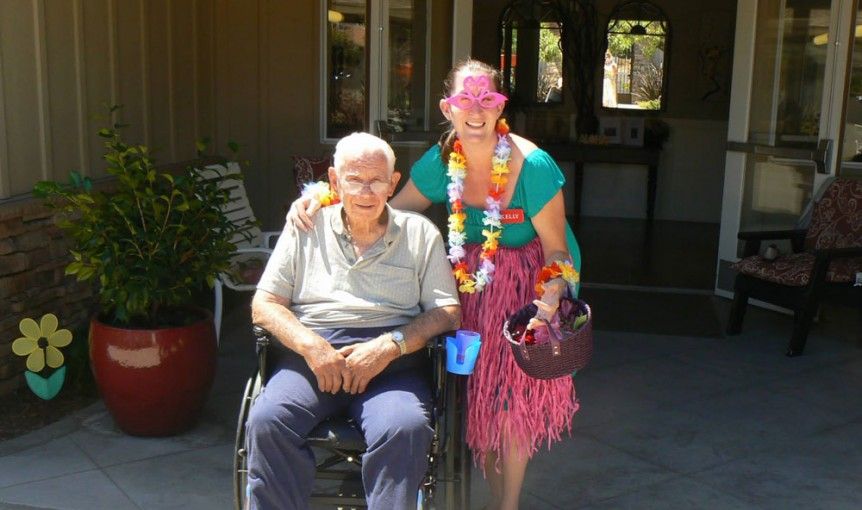
If you’re looking to develop compassionate communication with the memory impaired — perhaps with a family member who is living here, here are some simple tips to make your experience and theirs more enjoyable.
Don’t
- Reason
- Argue
- Confront
- Don’t remind them that they forget
- Don’t question recent memory
- Don’t take it personally
Do
- Give short, one sentence explanations.
- Allow plenty of time for comprehension, then triple it.
- Repeat instructions or sentences exactly the same way.
- Eliminate “But” from your vocabulary; substitute “nevertheless”
- Avoid insistence. Try again later.
- Agree with them or distract them to a different subject or activity.
- Accept the blame when something is wrong (even if it’s fantasy).
- Leave the room, if necessary, to avoid confrontations.
- Respond to the feelings rather than the words.
- Be patient and cheerful and reassuring. Do go with the flow.
- Practice 100% forgiveness. Memory loss progresses daily.
- Please elevate your level of generosity and graciousness.
Remember
You cannot control memory loss, only your reaction to it. Compassionate communication with the memory impaired will significantly heighten quality of life. They are not crazy or lazy. They say normal things, and do normal things, for a memory impaired, dementia individual. If they were deliberately trying to exasperate you they would have a different diagnosis. Forgive them ….always… For example: They don’t hide things; they protect them in safe places…and then forget. Don’ t take stealing accusations personally.
Their disability is memory loss. Asking them to remember is like asking a blind person to read. (“Did you take your pills?” “What did you do today?”)Don’t ask and don’t test memory! A loss of this magnitude reduces the capicity to reason. Expecting them to be reasonable or to accept your conclusion is unrealistic. (“You need a shower.” “Day care will be fun.” “You can’t live alone.”) Dont try to reason or convince them. Give a one sentence explanation or search for creative solutions. Memory loss produces unpredictable emotions, thought, and behavior, which you can alleviate by resolving all issues Peacefully. Don’t argue, correct, contradict, confront, blame, or insist.
Reminders are rarely kind. They tell the patient how disabled they are — over and over again. Reminders of the recent past imply, “I remember, I’m okay; you don’t, you’re not.” Ouch! Refer only to the present or the future. (If they’re hungry, don’t inform them they ate an hour ago, offer a snack or set a time to eat soon.) They may ask the same question repeatedly, believing each time is the first. Graciously respond as if it’s the first time. Some days they seem normal. but they’re not. They live in a different reality. Reminders won’t bring them into yours. Note: For vascular dementia, giving clues may help their recall. If it doesn’t work, be kind… don’t remind.
Ethical dilemmas may occur. If, for instance, the patient thinks a dead spouse is alive, and truthfull reminders will creates sadness, what should you do? To avoid distress, try these ways of kindness: 1) distract to another topic, or 2) start a fun activity, or 3) reminisce about their spouse, “I was just thinking about ______. How did you meet?” Or you might try, “He’s gone for a while. Let’s take our walk now.”
Open ended questions (“Where shall we go?” “What do you want to eat/wear/do?”) Are surprisinglyr complex and create anxiety. Give them a simple choice between two items or direct their choice, “You look great in the red blouse”
They are scared all the time. Each patient reacts differently to fear. They may become passive, uncooperative, hostile, angry, agitated, verbally abusive, or physcially combative. They may even do them all at different times, or alternate between them. Anxiety may compel them to shadow you (follow you everywhere) Anxiety compels them to resist changes in routine, even pleasant ones. Your goal is to reduce anxiety whenever possible. Also, they can’t remember your reassurances. Keep saying them.
If you need suggestions on handling challenging situations call the Alzheimer’s Association at 858-492-4400 or 800-272-3900



